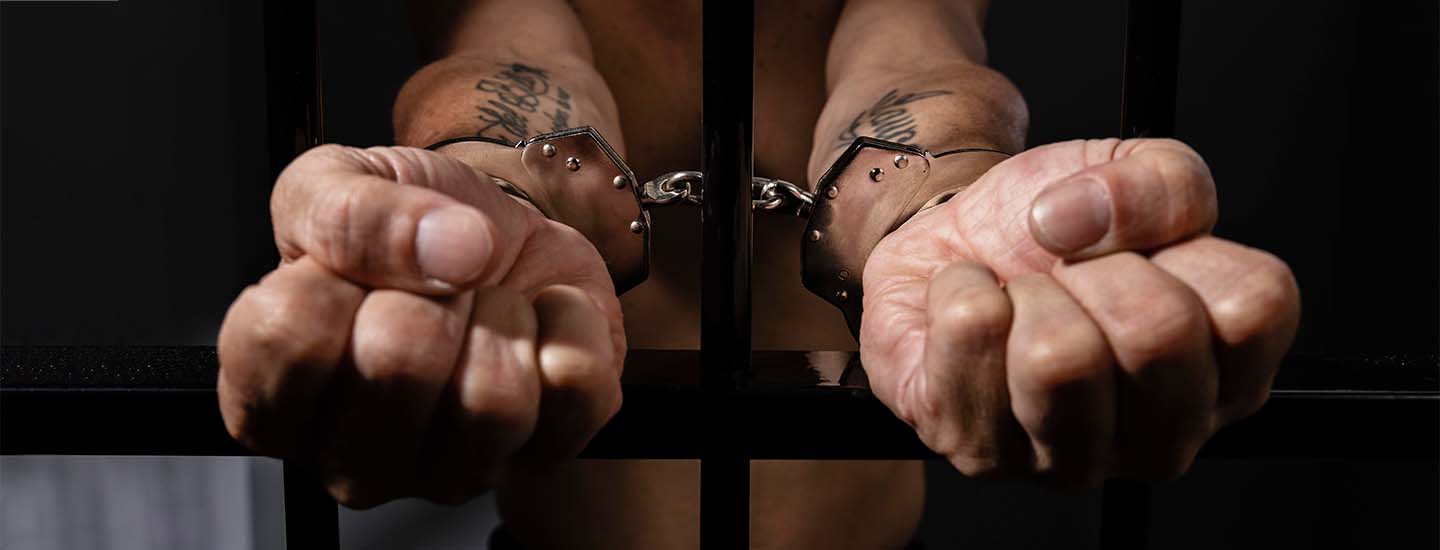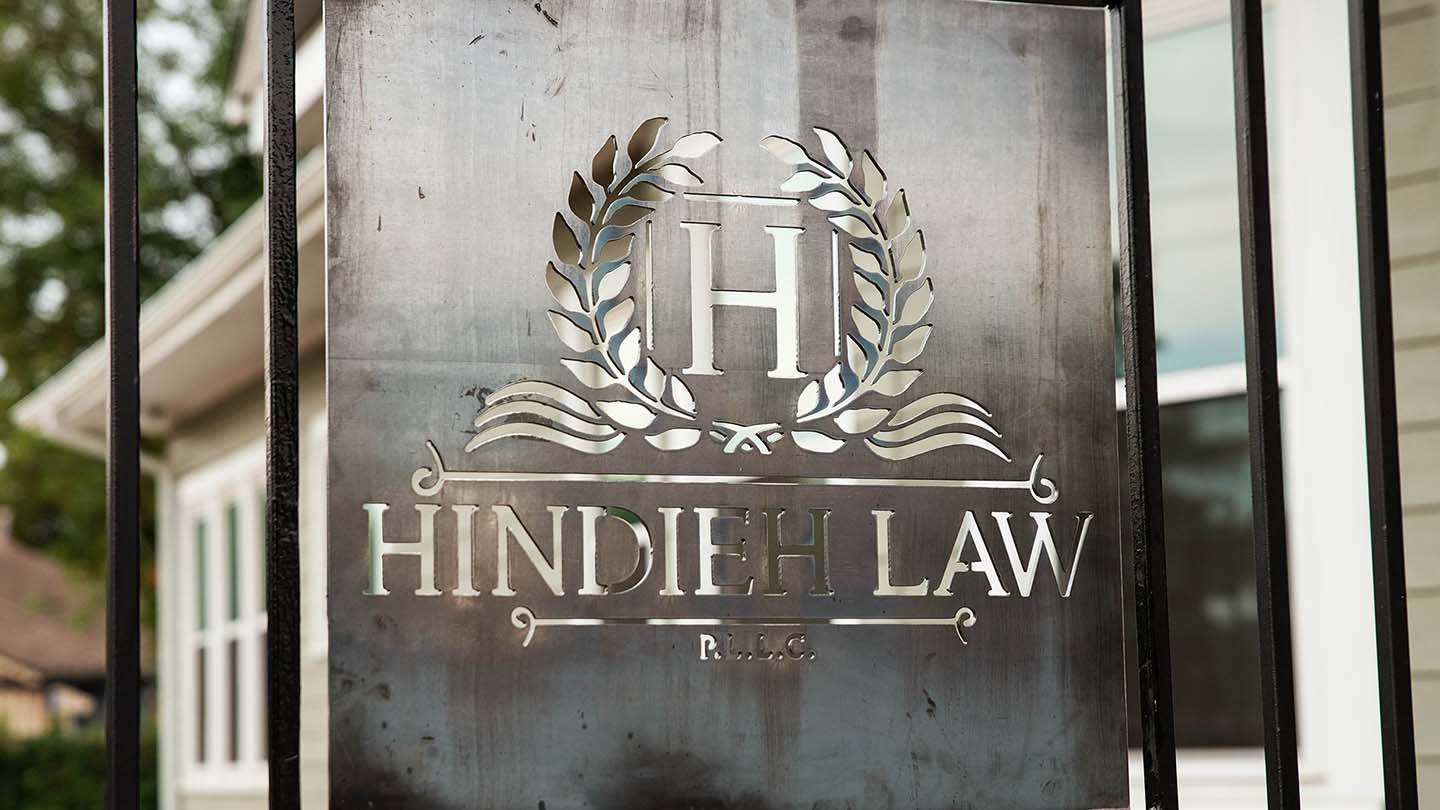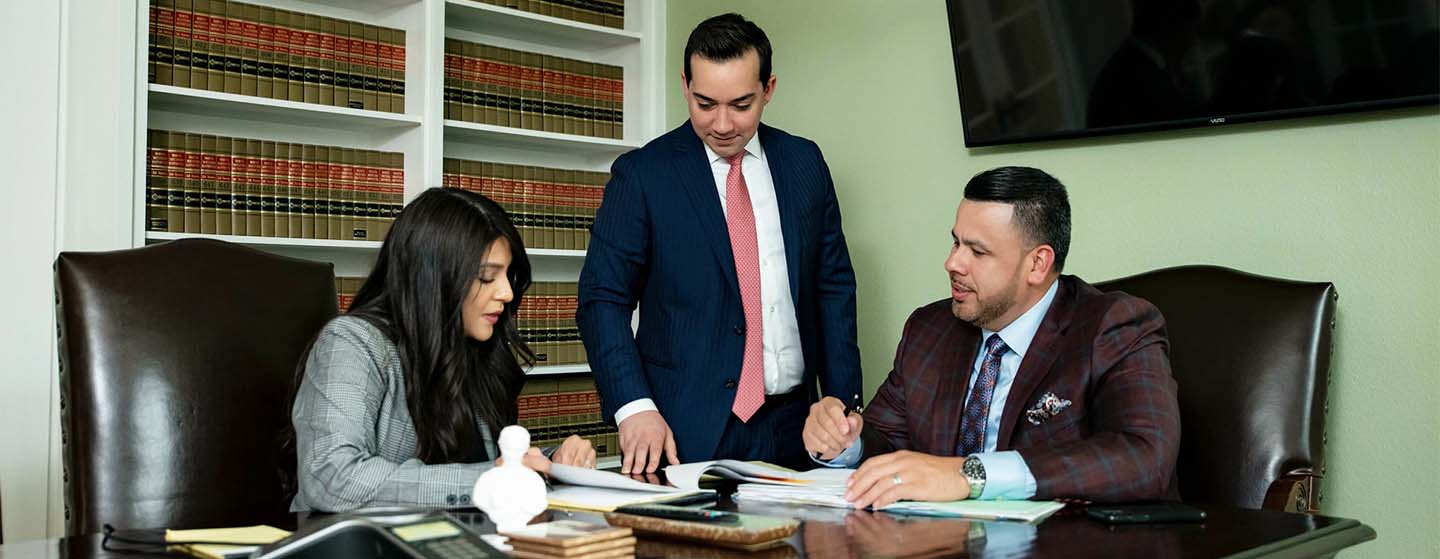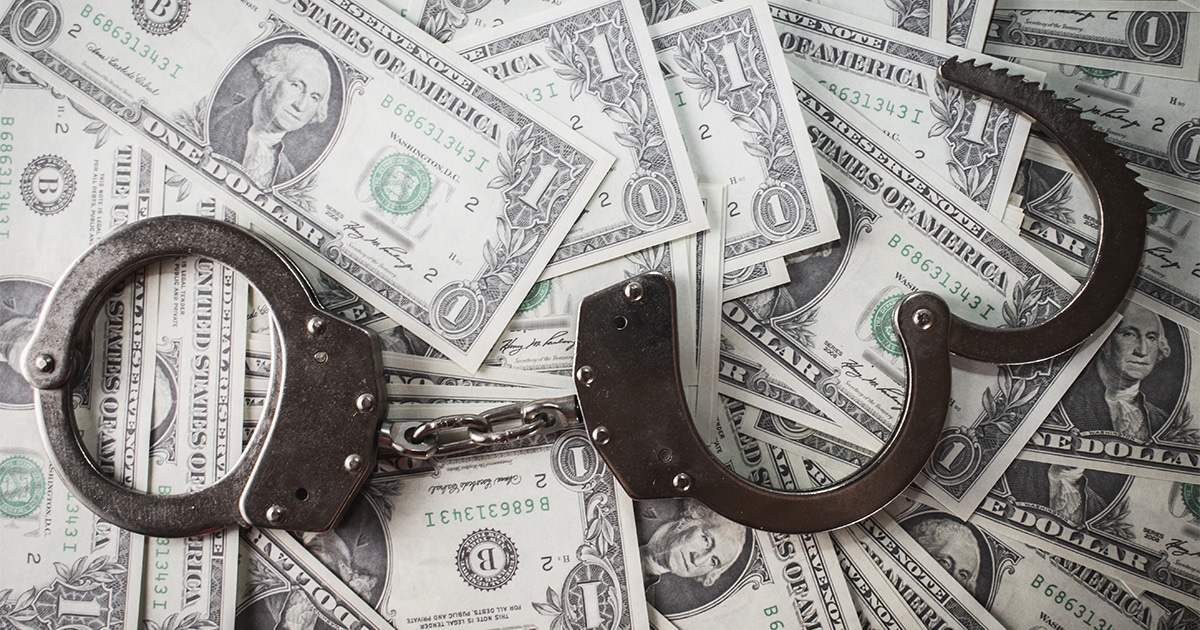214 Release: Hindieh Law – Can help arrange 24/7 Dallas Bail Bonds for you
214 Release: Hindieh Law, PLLC is a Dallas criminal defense attorney office for U.S. citizens, non-citizens, and immigrants. We recommend and arrange licensed, reputable bail bond agents for our clients who have been helping people bond out of the Dallas County jail and other detention facilities in Texas for years. We care for our clients, so we are ready to help 24 hours a day, 7 days a week with quality, reputable bail bond referrals. Give us a call now at 214.960.1458.
Our attorney, Ray Hindieh, is an experienced prosecutor who formerly worked for Dallas County as a district attorney. His experience as a prosecutor gives him unique insight into how the justice system works and how best to represent clients as a defense attorney. He knows the best bail bondsmen and is able to articulate the issues of your case to the bail bond company to expedite the process of obtaining your bond.
We Are Here to Answer All of Your Questions About Bail Bonds.
For 214 Release: Hindieh Law – 24/7 Dallas Bail Bonds, we pride ourselves on being the experts in the field that you can rely on. When you or your loved ones need bail bonding services in Dallas and surrounding counties, we are only a call away. When you need help posting a bond, getting a 24-hour bail bond, or securing jail release, Call 214.960.1458. At one point or another, everyone has to deal with circumstances involving the law. Ending up in jail, for some people, is an untimely and inconvenient consequence of the law.
If you or anyone you love is faced with this type of situation, your best choice is to call 214 Release: Hindieh Law – 24/7 Dallas Bail Bonds at 214.960.1458. We will work to get those you care about out of jail quickly. Our track record for honesty and integrity, along with our resourcefulness, helps us secure any bond or bail you need.
What Is a Bail Bond?
Bail is money given to the court which allows the arrested to get out of jail between the time of arrest and trial. Depending on the severity of the crime, the defendant’s criminal history, and their flight risk, a judge will determine how much money will need to be held by the court in order to allow a release from jail while awaiting trial. This money is held by the court until a final verdict in the case is decided. At this time, bail is refunded to the defendant. Typically, this is a very large amount of money that most defendants cannot afford.
Fortunately, 214 Release: Hindieh Law – 24/7 Dallas Bail Bond is here to help advise defendants on the most expeditious method to get out of jail without having to pay the full amount of bail. If a defendant is able to pay as little as 10% of the bail amount, 214 Release: Hindieh Law can advise and recommend the best bail bond companies who will cover the other 90% in exchange for a fee and a promise that the defendant will return for court.
How Does a Bail Bond Work?
There are many steps involved in getting bailed out of jail or helping a friend or family member that may need to be bailed out. Remember that getting bailed out of jail is an option. Sometimes bail is set very high, and choosing to bail someone out of jail carries a lot of trust and responsibility. It is important to ensure that you fully trust that person will attend all court proceedings before choosing to bail them out of jail.
“Ray Hindieh really came to my rescue! I found myself under false accusations, and he really came through. I was really freaking out, and Ray was able to make me feel like I was in good hands. I can’t recommend his services enough.” Ray helped me find a good, fair and reputable bondsman who was able to get me out of jail quickly. Ray was there the whole time and negotiated my bail lower in court.
Bail is a refundable deposit that allows the defendant to get out of jail until their court date. The deposit is used as collateral to ensure the defendant will return to court for trial or any applicable court proceedings. Not all cases will be given the option for bail. Options for bail are offered based on the jurisdiction, the type of crime, and whether the court believes the defendant will attempt to go on the run. This is often known as a flight risk.
If the defendant shows up for court, the bail is refunded by the court. If the defendant does not show up for court, the court keeps the deposit or collateral, and a warrant is issued for an arrest.
Many defendants will want to be bailed out of jail as soon as possible to keep their jobs, take care of their children and prepare for their court proceedings with a clear head. Sometimes court proceedings can take weeks or months, and it is understandable why people would not want to put their lives on hold while awaiting court or trial.
A bail bond is a way for a defendant to pay the jail to get out of jail until their court date. If the defendant cannot afford bail, they must wait in jail until their court date.
In many jurisdictions and situations, you do have the option of paying the full amount of bail yourself. Many offenses have small bond amounts. If the jail accepts credit card payments, defendants are also able to charge the amount for a fee.
If the defendant can pay the full amount of the set bail, finding a way to pay the jail is another tricky task. When you are taken into custody, often your personal items will be taken from you. Large amounts of cash may be taken as evidence. Some jail locations will not accept credit cards. If they do, there is usually a large fee involved.
Defendants also have the option of contacting a bail agent. The reason many people choose to do this is that they only pay a portion of the bond upfront when using an agency. Many times, friends or relatives of the defendant may contact a bail agent on their behalf.
If you decide to hire a bail bondsman or agent, they will write a contract to ensure that you understand that you are responsible for the defendant showing up in all court proceedings. If the defendant does not show up, you will be responsible for the full amount of the bail.
Bail Bonds Processes
Since arrests can happen anytime, bail bond agencies are typically open twenty-four hours a day. Many times, payment and paperwork can be completed electronically, which can help expedite the process. The paperwork is a contract between the person posting bail and ensures that they fully understand that they agree to be responsible for the defendant showing up to all court proceedings. The paperwork will also discuss what they have put on the line (some form of collateral) to ensure that person shows up in court.
The paperwork will also discuss the fees involved. When contacting a bail agent, they will need to know the full name of the defendant, the booking number and the charges they were brought in for, as well as the location of the jail they are being held. From there, the bail agent will bond the defendant out of jail. When the bail bondsmen are at the jail, they are given the court date, a receipt, and all the paperwork involved so that the bail bondsmen have all the pertinent information to follow up with the case. This can take several hours depending on procedures and how busy the jail is.
If the defendant fails to show up to any court proceedings, it will be the responsibility of the bail agent to pay the full amount of bail to the court. From there, the bail agent will hire a bounty hunter to track down the defendant and return them to jail. If the defendant fails to appear in court, the person who took out the bail bond can lose any collateral or have additional penalties depending on their contract.
What Is a Bail Hearing?
A bail hearing is where the court will set the bail amount. The judge will examine the details of the case and the nature of the crimes.
Depending on the jurisdiction and state laws, many times, there are bail schedules that are posted with the jails. These schedules set the standard for how much bail is required depending on the crime and can often be paid directly to the jail before a bail hearing. Jailhouse bail schedules are typically set in stone and non-negotiable.
At a bail hearing, judges will set the bail amount. This is usually the first appearance after the suspect’s arrest. Judges will typically make uniform decisions depending on the crime. The judge will consider whether the crime was drug-related, violent, or nonviolent and the character and history of the defendant. The judge will consider whether the defendant poses a threat to society if they are released while awaiting their court date.
While defendants do not need a lawyer to post bail, having a criminal defense attorney can help you at a bail hearing because both the defense and the prosecutor will have an opportunity to discuss bail with the judge at the bail hearing.
A criminal defense lawyer will have the opportunity to discuss bail factors and, in some cases, can attempt to have bail lowered at a bail hearing. Sometimes, judges will consider releasing a defendant on their own recognizance. This means that the defendant signs a written agreement with the court stating they promise to abide by restrictions set by the court and that they will show up for their court date. This type of bond, known as a recognizance bond, means that there are no bail fees. This can save hundreds or thousands of dollars for the defendant.
A criminal defense attorney may be able to negotiate with the judge and the prosecutor to have a recognizance bond as an option. In certain cases, this sort of bond will not be considered. This will depend on the type of crime, the jurisdiction, and whether the court believes the defendant may be a flight risk. In most cases, violent crimes, felony crimes, and gang-related crimes will not be considered for recognizance bonds.
How Much Is a Bail Bond?
Bail bond agencies will charge a fee if you use their services. Fees vary depending on the state and some states will have maximum fees that the bail bond agencies must abide by. For a full list of bail regulations and fees, click here. Fees also vary depending on the situation involved in the arrest and the amount of risk the bail bond agency takes on.
Because there is risk involved in bailing someone out of jail, bail agents also usually require collateral. Collateral can be anything of value that the person who hires the bail agent owns. This collateral is used to guarantee that the defendant will show up for their court date. This fee is usually anywhere from 10-20% of the bail amount. In California, the maximum amount is 10%. The fee can be paid up front or on a payment plan depending on the agreement stated in the paperwork.
Conditions will be set by the bail agent. These conditions must be met to comply with the agreement. This will be stated in any paperwork that is filled out when the agreement is made. The agreement will include provisions stating that the defendant must show up for all court proceedings.
Keep in mind that bail bondsmen are not required to help you bail yourself or anyone else out of jail. They are taking all the risk involved in the situation and they are there to help you, but bail is an option and not a requirement.
What Is a Bounty Hunter?
A bounty hunter is a trained or registered professional that is responsible for finding and capturing fugitives on behalf of the bail bondsmen. Many states have regulations for bounty hunters, and four states do not allow bounty hunting at all.
If a defendant has used a bail bondsman to get bailed out of jail, then they go on the run, they are considered a fugitive, and a warrant is issued for their arrest. The bail agent is responsible for paying the full amount of the bond to the court when this happens. The person who signed the agreement is now responsible for paying the bail agent the bond amount and/or any additional collateral as stated in the contract. When a defendant becomes a fugitive, there is still the issue of how they will be captured and brought to justice. This is where the bounty hunter comes in.
Bounty hunters get paid a portion of the defendant’s total bail amount. This portion is usually 10 – 20% of the total bail amount. This amount is paid after the bounty hunter has successfully located, tracked, and captured the fugitive. Many bounty hunters have backgrounds in criminal justice or private investigation and specialize in gathering pertinent information and locating and apprehending suspects.
Bounty hunters not only help keep the interest of the bail bondsmen but are also helping the interest of the community by getting criminals back into the justice system. In some states, a bail bondsman can also be a bounty hunter.
Start With Your Legal Counsel & Contact Ray Hindieh Today. Call 214.960.1458

Should I Post Bond or Hire an Attorney First?
When someone is arrested, it’s understandable to panic and bond that person out immediately. That may be the right decision, but not always. Some things to consider in making your decision:
- Is the person capable of living up to bond conditions upon immediate release? If the answer is no, you may be better off leaving the person in jail until you can get help (i.e., a drug rehabilitation facility). If you post a bond and the person is immediately rearrested, you will have lost the money and also face a bigger bond.
- What is your budget for helping the person arrested? If you can’t afford to bond the person out and hire a great attorney, you should consider hiring the attorney first. A good attorney can save you hundreds or thousands of dollars in bond costs, and this money is better spent hiring quality representation.
- Is there potential for a hold being added? If an arrestee is likely to have immigration or other holds but doesn’t have the hold in place now, you may consider posting the bond immediately before the hold appears.
Discuss Your Options for Your Specific Case With Us Today
Remember, a bond is different from probation or parole. Probation is monitored after a plea of guilty. Parole is when someone has served some of their sentences in custody and has been released and under monitoring in the community until the sentence is completed. If you need help with these issues, we also can serve as your parole or probation lawyer.
214 Release: Hindieh Law – 24/7 Dallas Bail Bond has an expert attorney who specializes in Bond Hearings and works with Bail Bonds and Writ Bonds. You will need an experienced criminal defense attorney to get you out of jail and keep you out. Contact Ray Hindieh or Rudy Banda to get you out of jail and arrange for your bond or bond hearing. Call 214 Release – 214.960.1458.








